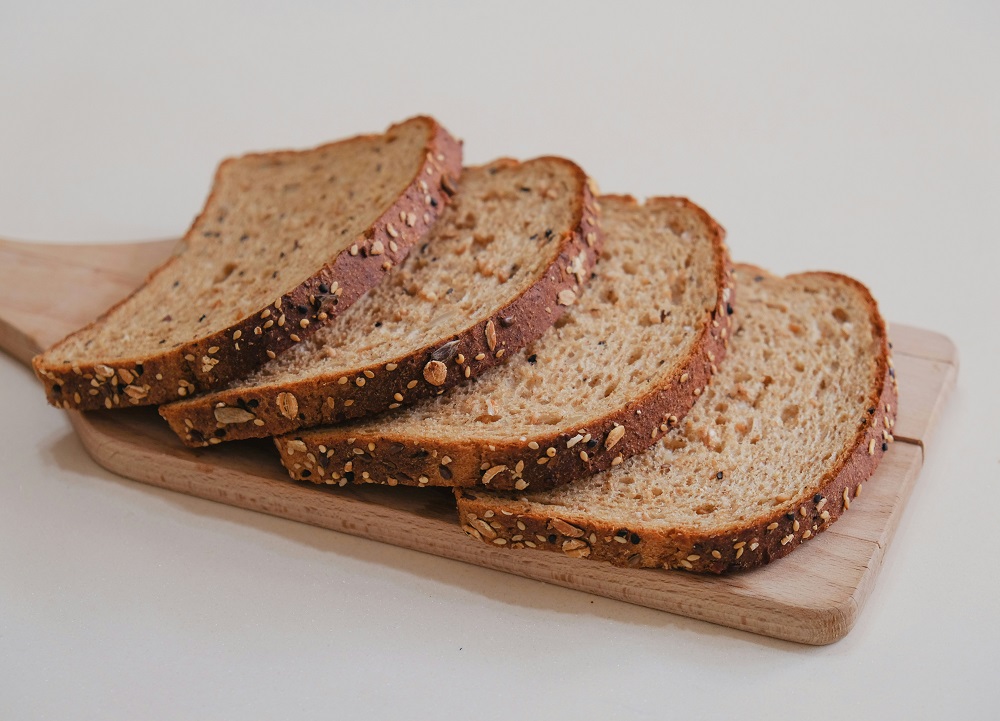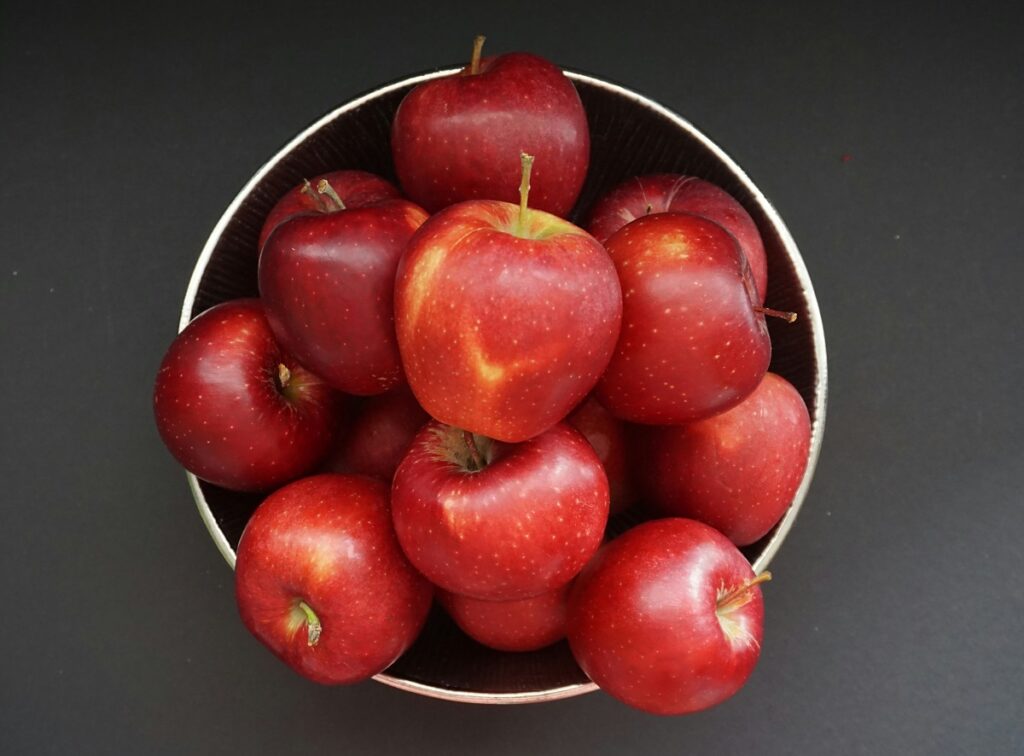Metabolism refers to the complex series of chemical reactions within the body that convert food and drink into energy. This process is essential for maintaining basic bodily functions like breathing, circulating blood, and digesting food. The rate at which your body burns calories—known as your metabolic rate—can be influenced by several factors, including age, genetics, activity level, and dietary choices. Accordingly Mohit Tandon USA, Followings are the 9 Metabolism Boosting Foods for Weight Loss :
In the pursuit of weight loss, many seek ways to boost their metabolism naturally. Some foods are believed to have thermogenic properties, meaning they help increase the body’s calorie-burning potential. While no single food will magically melt away fat, a well-balanced diet rich in metabolism-boosting foods can complement an overall weight-loss strategy. This article explores the top 10 foods that have been linked to metabolism enhancement, providing a guide for those aiming to optimize their metabolism and promote healthy weight loss.
1. Green Tea: A Powerhouse for Boosting Metabolism
Green tea has earned its reputation as a metabolism-boosting beverage due to its high content of catechins, particularly epigallocatechin gallate (EGCG). Catechins are antioxidants that have been shown to stimulate fat oxidation and increase the rate at which the body burns calories. Studies suggest that drinking green tea, especially when paired with regular physical activity, can help promote fat loss by enhancing thermogenesis (the process by which the body generates heat and burns calories).
Green tea’s combination of caffeine and catechins is thought to work synergistically, leading to an increase in energy expenditure. This has led many health experts to recommend incorporating green tea into your daily routine as part of a weight loss regimen.
Additionally, green tea has other health benefits, including its potential to reduce inflammation, support heart health, and improve brain function. Consuming 2-3 cups a day can be a simple and effective way to boost metabolism while reaping other health benefits. – Mohit Tandon USA

2. Coffee: The Metabolism-Boosting Morning Drink
Coffee, particularly black coffee, is another popular beverage that can increase metabolism. The primary active ingredient in coffee is caffeine, a stimulant that has been shown to temporarily boost the body’s metabolic rate. Caffeine stimulates the central nervous system and increases the release of adrenaline, which in turn can elevate the rate of fat burning.
Several studies have demonstrated that caffeine can increase calorie burning by up to 11%. Additionally, it can improve exercise performance, helping individuals engage in higher-intensity workouts that burn more calories. However, the effects of coffee on metabolism may vary from person to person, as tolerance to caffeine differs.
It’s important to note that adding excessive sugar or cream to your coffee can negate some of its benefits. For the best results, stick to black coffee or opt for unsweetened versions of coffee drinks.

3. Lean Proteins: The Role of Protein in Metabolic Rate
Proteins are crucial for building and repairing tissues, but they also play a significant role in metabolism. When you eat protein-rich foods, your body has to expend more energy to break down the food compared to fats and carbohydrates. This process is known as the thermic effect of food (TEF), and protein has a higher TEF than other macronutrients. Studies show that consuming a high-protein diet can increase metabolism by up to 30% for several hours after eating.
Incorporating lean sources of protein into your diet, such as chicken breast, turkey, tofu, eggs, and fish, can help promote muscle growth and repair. Since muscle tissue burns more calories at rest than fat tissue, building and maintaining lean muscle mass can contribute to a higher resting metabolic rate.
Moreover, protein helps control hunger by increasing feelings of fullness, which can reduce overall calorie intake. Consuming protein-rich meals at regular intervals throughout the day can help maintain a steady metabolism and prevent overeating.

4. Whole Grains: Boosting Metabolism with Fiber
Whole grains, such as quinoa, brown rice, oatmeal, and barley, are rich in fiber, which can have a significant impact on metabolism. Fiber helps slow down digestion, keeping you fuller for longer and reducing the likelihood of overeating. In addition, the body burns more calories processing whole grains compared to refined grains, contributing to a higher metabolic rate.
High-fiber foods also promote healthy digestion and regulate blood sugar levels. It can help prevent spikes in insulin that can lead to fat storage. Furthermore, fiber aids in the elimination of waste and toxins from the body, ensuring optimal metabolic function.
Incorporating whole grains into your meals provides a sustainable source of energy while supporting healthy metabolism and weight loss. Aim for at least three servings of whole grains per day as part of a balanced diet.

5. Eggs: The Perfect Metabolism-Boosting Breakfast
Eggs are an excellent source of high-quality protein and essential nutrients, making them a staple in many weight-loss diets. When it comes to metabolism, eggs are particularly beneficial due to their high protein content and ability to increase satiety.
The thermic effect of food (TEF) is particularly pronounced when consuming eggs, as the body burns more calories digesting protein. In fact, eating protein-rich foods like eggs can increase calorie burning by up to 30%, which helps with weight loss.
Eggs also provide important vitamins and minerals, including B vitamins (which play a role in energy metabolism) and choline (which supports fat metabolism). Including eggs in your breakfast can help you feel full and energized throughout the day, making them an excellent choice for those looking to boost their metabolism and control their weight. – Mohit Tandon USA

6. Coconut Oil: A Healthy Fat That Supports Metabolism
Coconut oil contains medium-chain triglycerides (MCTs), a type of fat that has been shown to have a unique impact on metabolism. Unlike long-chain fats, MCTs are rapidly absorbed and metabolized by the body, providing a quick source of energy. Additionally, MCTs may help increase calorie burning by enhancing thermogenesis and fat oxidation.
Some research suggests that replacing traditional fats, such as butter or vegetable oil, with coconut oil can help increase metabolic rate and promote fat loss. However, it’s important to use coconut oil in moderation, as it is still a calorie-dense food.
Coconut oil can be used in cooking, baking, or added to smoothies to help boost metabolism and support a healthy weight-loss plan. Its potential to increase calorie burning makes it a valuable addition to a metabolism-boosting diet.

7. Apples: Metabolism-Boosting, Hydrating, and Nutrient-Rich
Apples are an excellent source of fiber, particularly pectin, which helps regulate digestion and control hunger. The high water content of apples also contributes to hydration and helps you feel full, reducing overall calorie consumption. The combination of fiber, water, and natural sugars in apples makes them an ideal snack for those looking to boost their metabolism and support weight loss.
Furthermore, apples contain antioxidants and phytonutrients that can reduce inflammation and support overall metabolic health. Eating apples regularly as part of a balanced diet can help optimize metabolic function and prevent sluggish digestion.
In addition, apples have a low glycemic index, meaning they release sugar into the bloodstream slowly, preventing insulin spikes that can lead to fat storage. For these reasons, apples are a great choice for boosting metabolism and maintaining a healthy weight.

8. Greek Yogurt: A Probiotic Powerhouse for Metabolic Health
Greek yogurt is a rich source of protein and probiotics, which play a crucial role in maintaining a healthy gut. The protein in Greek yogurt helps to boost metabolism by increasing the thermic effect of food, while the probiotics support digestion and improve gut health.
A healthy gut microbiome has been linked to improved metabolism and better weight regulation, as it helps to balance the hormones responsible for hunger and satiety. Greek yogurt also provides calcium, which may help regulate fat storage and improve fat-burning processes.
To maximize the benefits, choose plain Greek yogurt without added sugar and incorporate it into meals or snacks throughout the day. You can top it with berries, seeds, or a drizzle of honey for extra flavor without compromising its metabolic benefits.

9. Berries: Antioxidant-Rich Fruits That Enhance Metabolism
Berries, such as blueberries, strawberries, and raspberries, are rich in antioxidants, fiber, and vitamins that can support metabolic health. The antioxidants in berries help combat oxidative stress, which can otherwise impair metabolism and lead to weight gain. The fiber content in berries promotes satiety and aids in digestion, helping to regulate hunger and prevent overeating.
Berries also have a low glycemic index, making them a good option for those looking to manage their blood sugar levels and support healthy metabolism. Their high water content further contributes to hydration and fullness.
Incorporating a variety of berries into your diet can help optimize your metabolism and support your weight-loss goals. They make an excellent addition to smoothies, yogurt, salads, and snacks.

Conclusion: Fueling Your Metabolism with Nutrient-Dense Foods
While no single food can miraculously speed up metabolism, a combination of metabolism-boosting foods can enhance your calorie-burning potential and support healthy weight loss. Incorporating green tea, coffee, chili peppers, lean proteins, whole grains, eggs, coconut oil, apples, Greek yogurt, and berries into your daily meals can provide a wide range of health benefits and promote a healthy metabolic rate.
In addition to eating metabolism-boosting foods, it’s important to maintain a balanced diet. Staying hydrated is also crucial for your health. Engaging in regular physical activity will further optimize your overall well-being. By combining these factors, you can create an environment where your metabolism thrives. This will help you achieve your weight loss goals.
